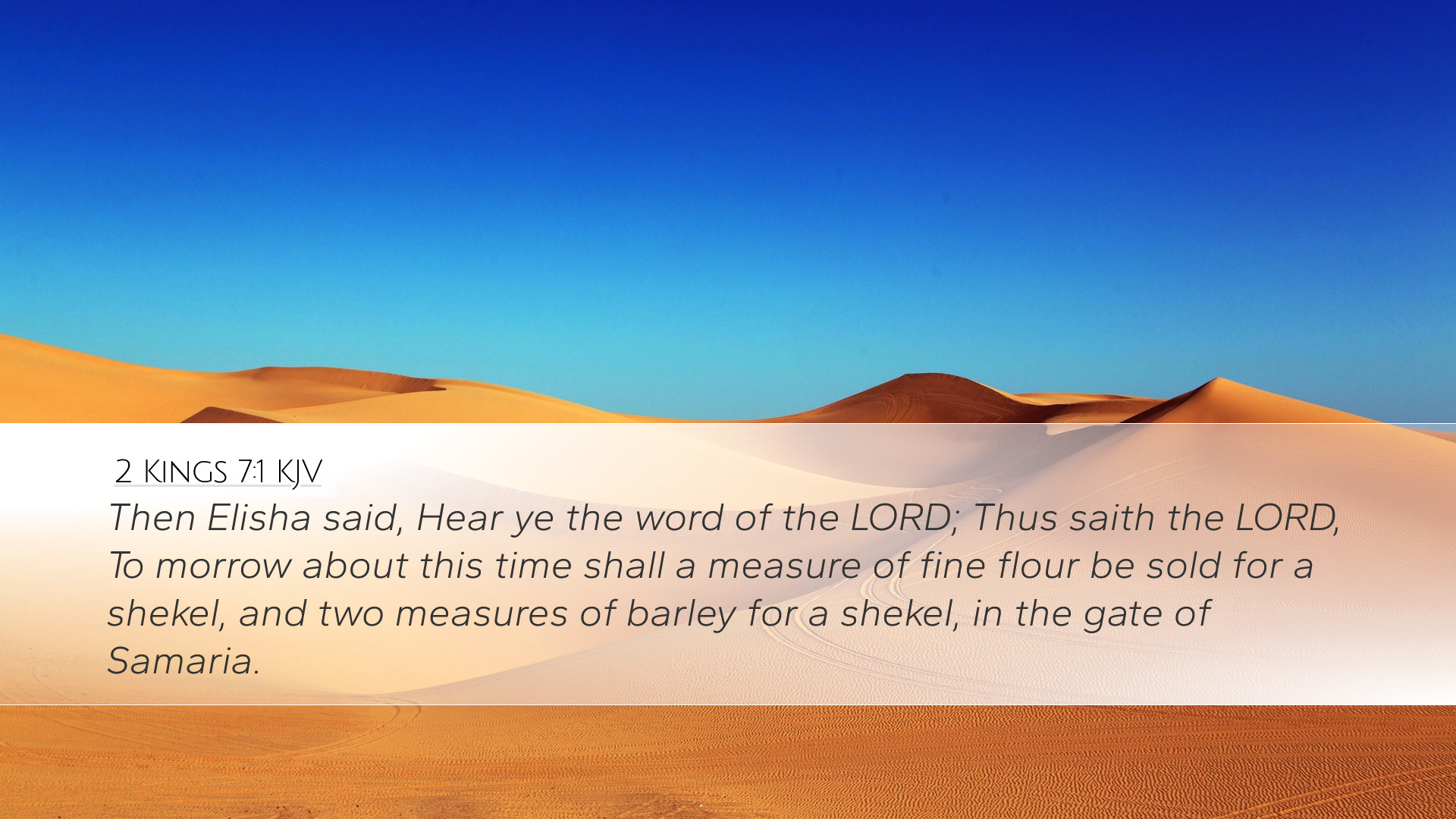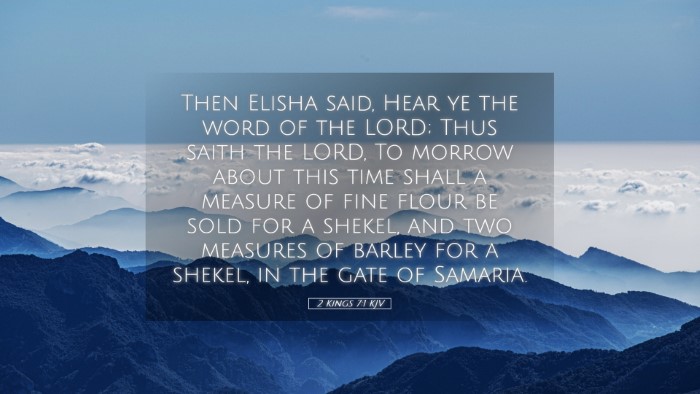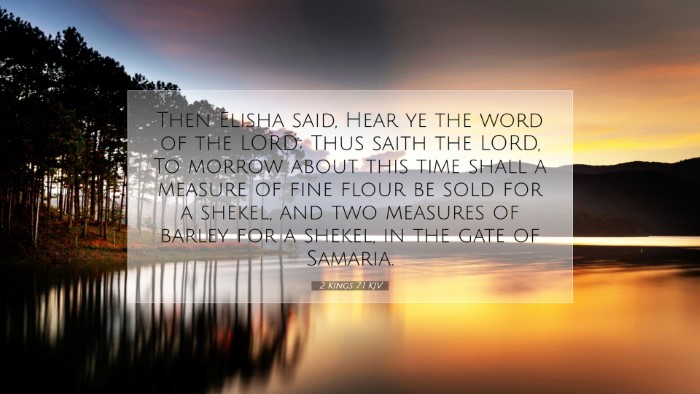Old Testament
Genesis Exodus Leviticus Numbers Deuteronomy Joshua Judges Ruth 1 Samuel 2 Samuel 1 Kings 2 Kings 1 Chronicles 2 Chronicles Ezra Nehemiah Esther Job Psalms Proverbs Ecclesiastes Song of Solomon Isaiah Jeremiah Lamentations Ezekiel Daniel Hosea Joel Amos Obadiah Jonah Micah Nahum Habakkuk Zephaniah Haggai Zechariah Malachi2 Kings 7:1
2 Kings 7:1 KJV
Then Elisha said, Hear ye the word of the LORD; Thus saith the LORD, To morrow about this time shall a measure of fine flour be sold for a shekel, and two measures of barley for a shekel, in the gate of Samaria.
2 Kings 7:1 Bible Commentary
Commentary on 2 Kings 7:1
In this verse, we see the prophet Elisha giving a divine proclamation amid a time of severe famine and despair in Samaria. The verse states:
"Then Elisha said, 'Hear the word of the Lord! This is what the Lord says: About this time tomorrow, a sow of the finest flour will sell for a shekel and two sows of barley for a shekel at the gate of Samaria.'" (2 Kings 7:1, NIV)
Contextual Background
The historical context of this prophecy is crucial for our understanding. The Northern Kingdom of Israel faced severe hardship due to a siege by the Arameans (Syrians), which led to extreme famine and desperation among the people. The situation was dire, with rampant inflation and dire consequences affecting daily life.
Insights from Commentators
Matthew Henry
Henry emphasizes the sovereignty of God in times of need. He notes that Elisha's proclamation serves both as a statement of hope and a miraculous message that only God can provide. In the face of human despair, God is depicted as ready to intervene and bless abundantly. Henry points out:
"Let them that are in distress hear the word of the Lord, for it brings comfort and refreshing." (Henry)
Albert Barnes
Barnes elaborates on the economic implications of Elisha's word. The prices mentioned highlight a return from famine to prosperity almost instantly—a miraculous turnaround that underscores the power of God in changing circumstances rapidly. He states:
"The prediction of the cereal price falling from exorbitant to normal levels in such a short time signifies not just physical sustenance but a restoration of hope and faith in God’s provision." (Barnes)
Adam Clarke
Clarke delves deeper into the socio-political ramifications of this prophecy. He relates the announcement to the people's need for reassurance and guidance in perilous times. He notes that:
"When leaders represent the voice of God, their proclamations can serve to galvanize a people in despair, providing a renewed basis for confidence in divine provision." (Clarke)
Theological Implications
This verse poses significant theological questions for pastors and theologians about faith and expectation in God's promises amidst human crises. The assurance given by Elisha can be seen as a paradigm for believers today, reminding us of God's faithfulness and ability to deliver from seemingly insurmountable obstacles.
- Faith in God's Promises: The verse encourages believers to trust in God's timing and provision, even when the situation seems hopeless.
- The Role of Prophecy: Elisha serves as a mouthpiece for God's word, revealing the importance of scripture and prophetic voices in guiding the faith community.
- Divine Intervention: The rapid change from famine to abundance exemplifies God's sovereignty and ability to transform circumstances beyond human comprehension.
Conclusion
In conclusion, 2 Kings 7:1 encapsulates a pivotal moment of hope for Israel and highlights the importance of prophetic ministry. The insights drawn from commentators like Henry, Barnes, and Clarke provide a multifaceted understanding of this verse, offering rich theological and practical insights for contemporary application.


